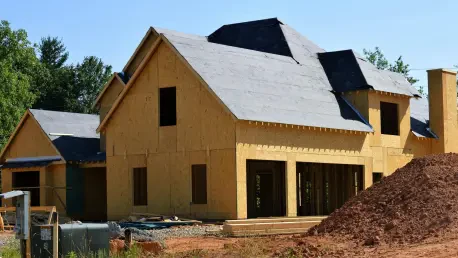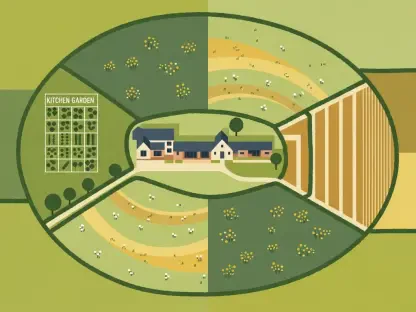In a decisive move to tackle the mounting affordable housing crisis, the Thanet Council Cabinet has approved a significant redevelopment project in Cliftonville. This initiative involves converting a former refuge on Edgar Road into a set of ten council flats. With six two-bedroom and four three-bedroom options, these units are part of a broader effort to meet the increasing demand for affordable homes in the region. The redevelopment will cater specifically to families on the Thanet housing register and those currently in temporary accommodations. This approval is a vital step forward in addressing housing challenges in the area and reflects the council’s proactive stance in revitalizing disused buildings to serve the community effectively.
Financial Aspects and Project Funding
The redevelopment project not only signifies a social investment but entails detailed financial planning and resource allocation strategies. Estimated costs for the entire redevelopment rest at approximately £2,788,274, inclusive of construction expenses tallying up to £2.49 million. Recognizing the often prohibitive expenses associated with refurbishing period properties, the council is actively engaged in securing additional funding to ease the financial burden. Efforts to obtain support from Homes England and the Brownfield Land Release Fund are in place, anticipating these initiatives will help balance the costs significantly. Such financial maneuvers underscore the necessity of safeguarding community assets promptly while maintaining fiscal responsibility amidst rising housing needs.
Councilor Helen Whitehead, a pivotal figure in housing policy as the Deputy Leader and Cabinet Member for Housing, stresses the formidable task of locating affordable housing options within the locale, exacerbated by spiraling rental costs in areas like Margate and Cliftonville. Whitehead cites the strategic employment of Live Margate funds as essential to improving housing capacity and quality. This funding approach not only addresses immediate housing shortages but also plays a critical role in fostering community integration and development in this increasingly unaffordable part of Thanet. The thoughtful distribution of financial assets is aimed at ensuring long-term stability and a community-oriented housing solution.
Challenges and Perspectives
Despite the overarching goals of the project, it is not without its skeptics who voice concerns regarding its financial sensibility and strategic merit. Councilor Marc Rattigan openly questions the project’s cost-effectiveness, drawing attention to the expense of the flats compared to other emerging developments in proximity. Skepticism centers around whether the significant monetary resources allocated could yield a higher quantity of housing units through alternative methods. However, in response to such doubts, Councilor Whitehead reinforces the project’s alignment with the Live Margate initiative’s objectives. This initiative prioritizes the renewal of neglected buildings for public housing rather than an outright purchase of existing properties, thus expanding the available housing market in a novel and strategic manner.
This forward-thinking project also sets precedence for other conversions, mimicking success stories seen with the conversions on Sweyn Road and Warwick Road. While some suggest reallocating funds towards potentially more cost-effective housing solutions, the council defends its decision to focus on underutilized structures as consistent with its strategic objectives. The plan targets break-even within twelve years, underscoring a commitment to value and sustainability. The council’s choice to move toward tendering the redevelopment stands as an affirmation of its dedication to ensuring sustainable and secure housing futures for the residents of Thanet, despite varying perspectives on financial distribution and prioritization.
Implications for Future Development
In an assertive effort to combat the escalating affordable housing crisis, Thanet Council Cabinet has given the green light to a transformative redevelopment project situated in Cliftonville. The plan involves converting an old refuge on Edgar Road into a modern set of ten council flats. This project features six units with two bedrooms and four with three bedrooms, all designed to help alleviate the growing need for affordable housing in the area. The newly redeveloped flats specifically target families listed on the Thanet housing register, as well as those enduring temporary housing situations. This project signifies a pivotal step forward in tackling the area’s housing concerns and illustrates the council’s commitment to revitalizing underutilized structures for the community’s benefit. By repurposing vacant buildings, the council aims to not only provide immediate housing solutions but also to enhance the overall quality of life for residents by increasing the supply of suitable and accessible homes.









